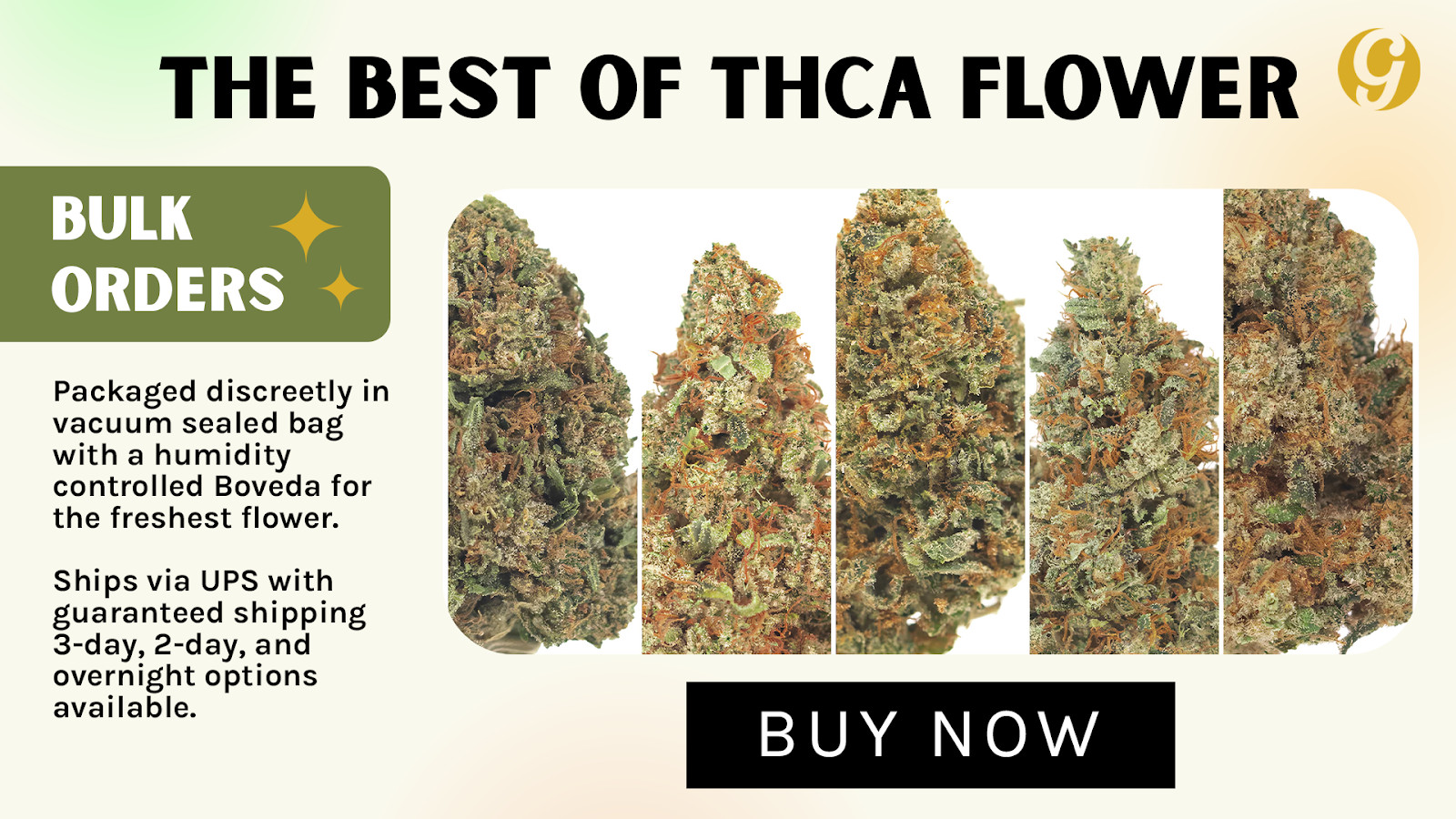Air travel can be stressful enough without the added worry of whether your cannabis products comply with regulations. For those in the know about cannabis compounds, THCA (Tetrahydrocannabinolic Acid) is becoming increasingly popular for its unique properties. But when it comes to flying, the question “Can You Fly With Thca?” is far from straightforward.
At [Your Website Name – e.g., flyermedia.net or Brand Name], as experts in media content and cannabis education, we understand the confusion surrounding cannabis laws, especially when they intersect with air travel. We’re committed to providing clear, reliable information to help you navigate these complexities.
This comprehensive guide will explore the legal landscape of THCA, Transportation Security Administration (TSA) guidelines, and the potential risks and best practices for traveling with THCA products. Whether you’re a seasoned cannabis user or new to THCA, this information will help you make informed decisions before your next flight.
Alt text: Explore bulk wholesale options for THCA and other hemp products, highlighting business opportunities in the growing cannabis market.
Understanding THCA: What Is It?
THCA, or Tetrahydrocannabinolic Acid, is a cannabinoid found in raw and live cannabis plants. It’s the precursor to THC (tetrahydrocannabinol), the compound famous for its psychoactive effects. In its natural, unheated state, THCA is non-psychoactive, meaning it won’t produce the “high” typically associated with cannabis.
The magic happens when THCA is exposed to heat through a process called decarboxylation. This process, which occurs when you smoke, vape, or cook cannabis, converts THCA into THC.
Despite being non-psychoactive in its raw form, THCA is gaining attention for its potential therapeutic benefits. Research suggests it may possess anti-inflammatory, neuroprotective, and anti-emetic (anti-nausea) properties. This has led to increased interest in consuming THCA in its raw form, such as through juicing raw cannabis or using THCA isolates.
The Legal Status of THCA in the United States: A Complex Picture
The legality of THCA in the U.S. is a tangled web of federal and state regulations, primarily because of its direct relationship to THC. While THCA itself is not federally scheduled, its ability to convert into federally illegal THC creates significant legal ambiguities.
Federal Law and THCA: A Gray Area
Under the 2018 Farm Bill, hemp-derived products with less than 0.3% Delta-9 THC are federally legal. However, the law doesn’t explicitly address THCA. Federal agencies, including the TSA, operate under federal law, which still classifies marijuana and THC as controlled substances.
Because THCA can become THC, federal authorities may view it with suspicion, especially in states where cannabis remains illegal. This is where the “gray area” emerges:
- Not explicitly illegal: THCA itself is not listed as a controlled substance.
- Potential for THC conversion: Its inherent ability to transform into THC raises red flags under federal law.
- TSA adherence to federal law: TSA agents are obligated to report substances that are federally illegal.
This federal ambiguity means that even if you purchase THCA products legally in a state where cannabis is legal, you could still face issues under federal jurisdiction, such as at airports.
State Laws and THCA: Varying Degrees of Legality
State laws regarding cannabis and THCA are diverse and constantly evolving:
- Cannabis Legal States: In states with legal recreational or medical cannabis, THCA products are generally permissible. These states often regulate cannabis based on total THC content, which may include the potential THC from THCA after decarboxylation. Regulations can vary widely from state to state, so it’s crucial to check local laws.
- Cannabis Illegal States: In states where cannabis remains illegal, THCA faces a higher risk of legal repercussions. Law enforcement in these states might interpret possession of THCA as intent to possess THC, even if the product is technically non-psychoactive in its current form. This is particularly true in states with strict cannabis enforcement.
Product Labeling and Legal Complications
Another layer of complexity arises from product labeling. Many cannabis product labels focus on THC content, but may not clearly indicate THCA levels. This lack of clarity can lead to confusion and potential legal issues for consumers who believe they are purchasing a legal hemp product, only to find themselves in a legal gray area due to its THCA content and potential for THC conversion.
The Federal vs. State Law Conflict
The conflict between federal and state cannabis laws significantly impacts THCA’s legal standing. While some states embrace THCA within their legal cannabis frameworks, federal law remains restrictive, creating a challenging landscape for interstate commerce and travel, especially concerning air travel.
Flying Domestically with THCA: Is It Allowed?
The crucial question for travelers is: “Can you bring THCA on a plane within the United States?” The answer is complex and leans towards proceeding with extreme caution, or ideally, avoiding it altogether.
While THCA itself is non-psychoactive and not explicitly scheduled federally, TSA’s stance is shaped by federal law, which prohibits marijuana and THC. TSA screeners are not explicitly looking for drugs, but if they discover a substance that appears to violate federal law, they are obligated to report it to law enforcement.
Here’s why flying with THCA is risky:
- TSA’s Federal Mandate: TSA operates under federal law, which doesn’t differentiate between THCA and THC in practical airport scenarios.
- Potential Misinterpretation: TSA agents might not distinguish THCA from THC-rich cannabis flower or concentrates, especially if the product resembles illegal marijuana.
- Risk of Confiscation and Legal Scrutiny: Even if THCA is legal in your departure and arrival states, TSA’s federal jurisdiction means your products could be confiscated, and you could face questioning by law enforcement.
TSA Guidelines: What You Need to Know
The TSA website states that it’s their officers’ responsibility to report any suspected violations of law, including drug laws. While they are primarily focused on security threats, cannabis products, including THCA, fall under their purview if discovered during screening.
- Enforcement is Incident-Based: TSA doesn’t actively search for drugs, but screenings are thorough, and cannabis products can be easily detected, especially cannabis flower or concentrates.
- Referral to Law Enforcement: If a TSA agent identifies a substance that resembles illegal cannabis, they will typically call airport law enforcement to determine if further action is needed. This could range from confiscation to potential legal charges, depending on local and state laws at the airport location.
- Hemp vs. Marijuana Ambiguity: While hemp-derived CBD products with under 0.3% Delta-9 THC are federally legal, THCA’s status is less clear-cut to TSA officers, who may not be trained to differentiate between hemp and marijuana based on appearance alone.
 THCA Flower
THCA Flower
Alt text: High-quality THCA flower, showcasing its natural form and potential uses before decarboxylation.
International Travel with THCA: A Definite No-Go
If domestic travel with THCA is risky, international travel with THCA is highly discouraged and carries significant legal risks. Cannabis laws vary dramatically worldwide, and many countries have far stricter regulations than the U.S.
- Global Cannabis Prohibition: Many countries maintain complete bans on cannabis and cannabis-derived products. Bringing THCA into these countries, even unknowingly, can result in severe penalties, including hefty fines, imprisonment, and deportation.
- Customs and Border Patrol Stringency: International customs agents are often even more stringent than TSA. They are likely to treat any cannabis product, including THCA, as illegal, regardless of its legal status in your departure location or intended destination.
- Lack of International Reciprocity: Even if you are traveling to a country with legal cannabis, airport regulations and customs laws may not recognize or respect cannabis legality from other jurisdictions.
Guidelines for International Travelers:
- Assume Illegality: For international travel, it’s safest to assume that all forms of cannabis, including THCA, are illegal in airports and across international borders, unless you have explicit, written confirmation from the relevant country’s embassy or consulate stating otherwise (which is highly unlikely for THCA).
- Research Destination and Transit Countries: Thoroughly research the cannabis laws of your destination country and any countries you might transit through. Ignorance of the law is not a valid defense.
- U.S. CBP Enforcement: U.S. Customs and Border Protection (CBP) also enforces federal law, so even when leaving the U.S., you could face scrutiny if attempting to carry THCA out of the country.
What Happens If You’re Caught with THCA at the Airport? Potential Consequences
Being caught with THCA at an airport can lead to a range of consequences, depending on various factors, including location, product type, and law enforcement response.
- TSA Referral to Law Enforcement: As mentioned, TSA’s role is to alert law enforcement if they suspect illegal substances. This is the first step in potential legal consequences.
- Local Law Enforcement Discretion: The response of airport law enforcement can vary. In some cases, especially for small amounts and in cannabis-legal areas, officers might issue a warning and confiscate the product. In stricter jurisdictions, or with larger quantities, you could face:
- Confiscation of THCA Products: This is the most likely minimum outcome.
- Fines: Civil or criminal fines can be levied depending on local laws and the officer’s discretion.
- Misdemeanor or Felony Charges: In states with stringent cannabis laws, possessing THCA could be treated as marijuana possession, leading to misdemeanor or even felony charges, particularly if intent to distribute is suspected.
- Travel Delays and Missed Flights: Dealing with law enforcement at an airport can cause significant delays, leading to missed flights and travel disruptions.
Consequences in Different Legal Environments:
- Cannabis Legal States: Even in legal states, federal law at airports complicates matters. While local law enforcement might be more lenient, TSA’s federal role remains.
- Cannabis Illegal States: Consequences are likely to be more severe in states where cannabis is illegal. Law enforcement is more likely to treat THCA possession as a cannabis offense, leading to potential fines and charges.
- International Airports: As discussed, international airports and customs can impose the harshest penalties, up to and including imprisonment in some countries.
Best Practices for Navigating Travel and THCA
Given the legal complexities, the safest and most stress-free approach is generally to avoid traveling with THCA products, especially by air. However, if you choose to travel with THCA despite the risks, here are some best practices to minimize potential issues:
- Thorough Legal Research: Before traveling, meticulously research the cannabis laws of your departure, arrival, and any layover locations. Focus on state and local laws, but remember federal law governs airports.
- Consider Alternatives: Explore purchasing THCA or cannabis products at your destination if legal and accessible. This eliminates travel risks.
- Proper Packaging and Labeling: If you must travel with THCA, keep it in its original, clearly labeled packaging. This might help demonstrate it’s a legally purchased product (though it doesn’t guarantee legal protection at airports).
- Travel Documentation (Medical): If you use THCA for medical reasons, carry relevant documentation, such as a doctor’s recommendation or medical cannabis card. While TSA doesn’t recognize state medical cannabis laws, it might provide context to law enforcement.
- Be Prepared for Confiscation: Accept the risk that your THCA products may be confiscated by TSA or law enforcement, regardless of your precautions. Don’t travel with more than you are willing to lose.
- Discreet Transport: If you proceed, transport THCA products discreetly. Avoid carrying raw flower, which is more easily identifiable as marijuana. Consider less conspicuous forms, but understand no form is risk-free.
Disclaimer: This information is for educational purposes only and not legal advice. Cannabis laws are complex and subject to change. Consult with legal counsel for specific situations.
Final Thoughts: Navigating the Uncertain Skies with THCA
Traveling with THCA is fraught with legal uncertainties due to the compound’s relationship to THC and the patchwork of federal, state, and international cannabis laws. While THCA itself is non-psychoactive, its potential to become THC and the strict federal regulations governing air travel create significant risks.
For most travelers, especially those flying, the most prudent course of action is to err on the side of caution and avoid traveling with THCA products. Understanding the legal landscape, TSA guidelines, and potential consequences is crucial for making informed decisions and ensuring your travels are as smooth and legally compliant as possible.
Read also: [Link to a relevant article on your website, e.g., about CBD travel or cannabis legality]
Frequently Asked Questions About Flying with THCA
Can I carry THCA in my checked luggage?
No, it is not advisable. Checked luggage goes through screening, and TSA’s federal jurisdiction applies regardless of whether items are checked or carry-on.
Is THCA detectable in airport scanners?
Airport scanners are designed to detect a wide range of items, and while they may not specifically target THCA, any cannabis product could trigger further inspection.
Can I bring THCA on domestic flights if it’s for medical use?
While medical use might be legal in your state, TSA operates under federal law, which does not recognize state medical cannabis programs. It remains risky.
Can I fly with THCA edibles?
No. Edibles are cannabis products and fall under the same scrutiny as other forms of THCA.
Can I mail THCA products instead of flying with them?
Mailing cannabis products through the U.S. Postal Service or other carriers is also federally illegal, even between states with legal cannabis.
Is THCA considered the same as hemp by federal law?
No, THCA’s legal status is more ambiguous than hemp-derived CBD due to its potential to convert to THC.
Can TSA tell the difference between THCA and THC?
TSA agents are not typically trained to chemically differentiate between THCA and THC. They are more likely to identify something as “marijuana-like” and refer it to law enforcement.
Are THCA concentrates allowed on flights?
No, concentrates are even more likely to be flagged due to their potency and resemblance to illegal cannabis extracts.
Will I face fines if I accidentally bring THCA on a flight?
Potentially, yes. Fines or legal penalties depend on local laws and law enforcement decisions at the airport.
Can I declare THCA at customs during international travel?
No, declaring THCA at customs in countries with cannabis prohibitions will likely lead to confiscation and potential legal repercussions.
Sources:
- Know Before You Visit | U.S. Customs and Border Protection. (2018). Cbp.gov. https://www.cbp.gov/travel/international-visitors/know-before-you-visit
- Medical Marijuana | Transportation Security Administration. (n.d.). Www.tsa.gov. https://www.tsa.gov/travel/security-screening/whatcanibring/items/medical-marijuana
- Travel | U.S. Customs and Border Protection. (2017). Cbp.gov. https://www.cbp.gov/travel/cbp.gov (Corrected URL to: https://www.cbp.gov/travel)

